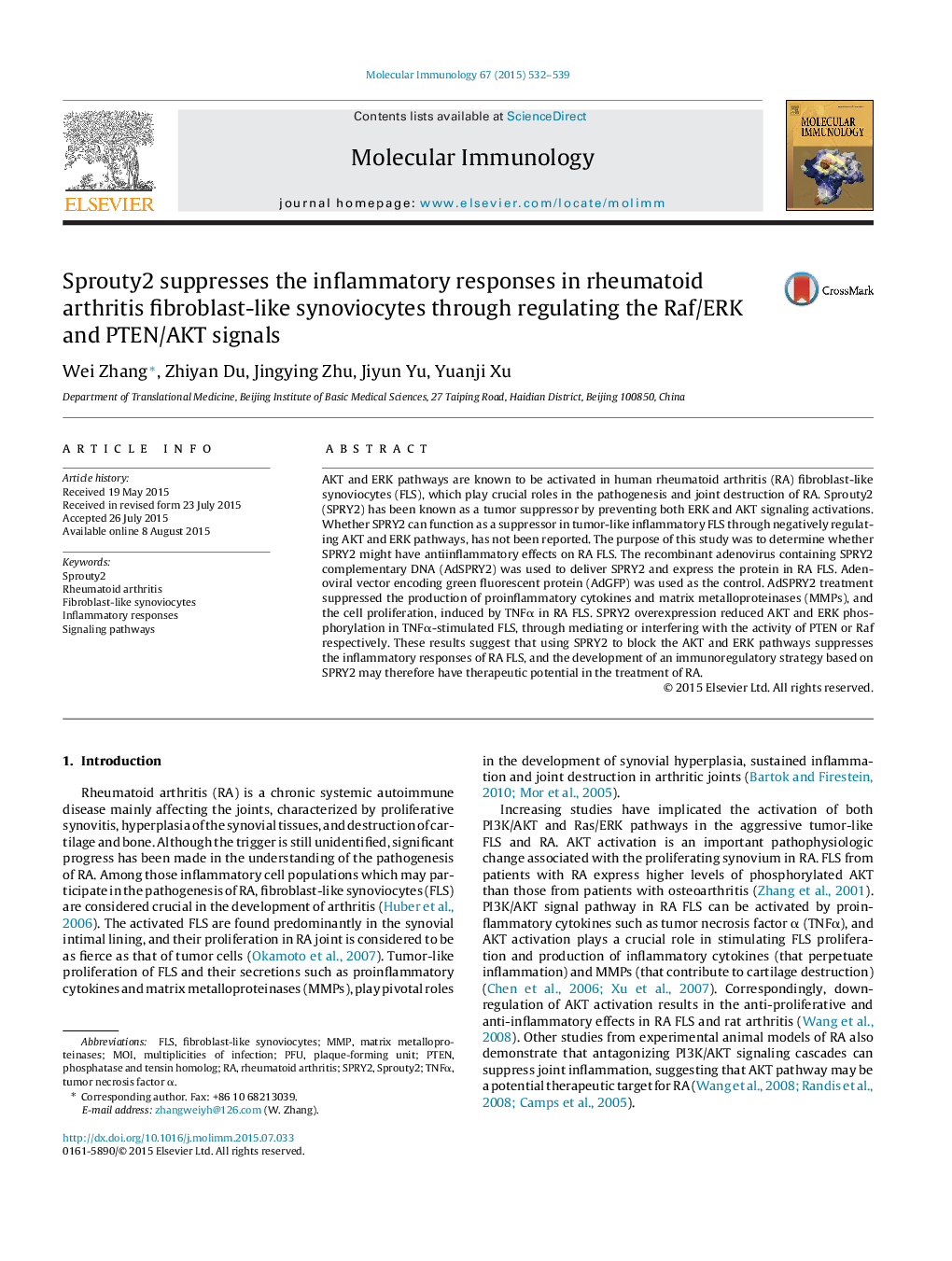| Article ID | Journal | Published Year | Pages | File Type |
|---|---|---|---|---|
| 5916698 | Molecular Immunology | 2015 | 8 Pages |
â¢SPRY2 inhibits the inflammatory responses of RA FLS.â¢SPRY2 reduces both AKT and ERK phosphorylation in TNFα-stimulated RA FLS.â¢SPRY2 decreases Raf1 phosphorylation to inhibit ERK signaling in RA FLS.â¢SPRY2 decreases PTEN phosphorylation and increases PTEN content to inhibit AKT.
AKT and ERK pathways are known to be activated in human rheumatoid arthritis (RA) fibroblast-like synoviocytes (FLS), which play crucial roles in the pathogenesis and joint destruction of RA. Sprouty2 (SPRY2) has been known as a tumor suppressor by preventing both ERK and AKT signaling activations. Whether SPRY2 can function as a suppressor in tumor-like inflammatory FLS through negatively regulating AKT and ERK pathways, has not been reported. The purpose of this study was to determine whether SPRY2 might have antiinflammatory effects on RA FLS. The recombinant adenovirus containing SPRY2 complementary DNA (AdSPRY2) was used to deliver SPRY2 and express the protein in RA FLS. Adenoviral vector encoding green fluorescent protein (AdGFP) was used as the control. AdSPRY2 treatment suppressed the production of proinflammatory cytokines and matrix metalloproteinases (MMPs), and the cell proliferation, induced by TNFα in RA FLS. SPRY2 overexpression reduced AKT and ERK phosphorylation in TNFα-stimulated FLS, through mediating or interfering with the activity of PTEN or Raf respectively. These results suggest that using SPRY2 to block the AKT and ERK pathways suppresses the inflammatory responses of RA FLS, and the development of an immunoregulatory strategy based on SPRY2 may therefore have therapeutic potential in the treatment of RA.
Graphical abstractDownload full-size image
